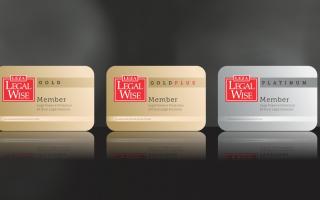Human Rights are the fundamental rights that every individual is born with. These rights are based on the general values of society and are protected in the Bill of Rights, which forms Chapter 2 of the Constitution of the Republic of South Africa (“Constitution”). The significance of the Bill of Rights lies in South Africa’s past: a time when these values were not respected equally or extended to every person. Examples of a person’s basic human rights include, the right to privacy, dignity, equality, access to healthcare, freedom of speech, fair labour practices, and so on.
Although a person’s human rights may not be taken away from them, these rights may be limited in certain instances. The limited human rights of a person will be weighed against the human rights of others and the values of society. For example, if a person feels that his/her freedom of expression has been violated, the court weighs his/her right against societal values and every other person’s right to dignity when considering whether it is lawful to limit his/her freedom to say something in public.
South Africa celebrates Human Rights day on 21 March and is historically linked with the events of Sharpeville that took place on the same date in 1960. This historic even highlights the unity of people coming together to claim their rights.
Everyday should be human rights day as a person gets to deal with the basic human rights on a daily basis. It is important for everyone to know what their rights are and to be given the opportunity to enforce those rights in a fair and objective manner. This article will focus on access to courts and how that gives rise to access to justice.
What is access to justice?
- The word “justice” generally refers to fair and equal treatment of persons, as well as the manner in which the law is applied.
- The Constitution protects, as a human right, a person’s access to courts where his/her dispute can be resolved in a fair and public hearing. The importance of this human right is that it plays a big role in the protection and enforcement of other rights, including human rights.
- The right to access to courts ensures that South Africans can exercise their rights and if they are violated, they may seek assistance from the courts.
Does access to justice only limits a person to courts?
- Access to justice is not just limited to courts, but extends to other forums and tribunals. For example, the various industry ombudsman (such as the Ombudsman for Banking Services) and tribunals (such as the National Consumer Tribunal) that are available to the public.
- There are various other forums that grant access to justice for different legal matters, such as:
- The Commission for Conciliation, Mediation and Arbitration (“CCMA”) for labour matters.
- Legal Aid South Africa that provides free legal services (mostly relating to criminal matters) to people who do not have the means to pay for a legal practitioner and who earns below a certain threshold that is prescribed from time to time.
- The South African Human Rights Commission (“SAHRC”) that is a government institution, which promotes, monitors and protects human rights. The SAHRC can investigate, resolve, provide advice to, and assist victims of human rights violations.
- Despite having these other forums for a person to exercise his/her right to access to justice, many people are not aware of their right and how to exercise their right.
- Therefore, it is important that South Africans are educated about what their basic rights are, how these rights can be violated and what they can do about it. The lack of such knowledge can lead to human right violations going by undefended due to a person not even knowing that his/her rights have been violated.
Are there any factors that can limit a person’s access to justice?
- There are various factors that can lead to a person’s access to justice being limited. One of these factors is excessive costs of legal services that can restrict a person’s right to access justice.
- This has been highlighted in case law where the Deputy Judge President of the Local Division of the High Court in Johannesburg, Phineas Mojapelo, said the following: ”the cost of litigation is depriving the poor from access to justice”.
- Acknowledging the seriousness of the matter, the recent Legal Practice Act 28 of 2014 (“LPA”), that regulates the legal profession, brought about an entire investigation regarding costs for legal services looking for possible solutions on how to ensure better and more affordable access to justice for everyone.
- However, as court procedures might become expensive (depending on the complexity of the matter), it is important to remember the existence of less expensive forums a person can approach to enforce his/her rights. For example, if a person has a consumer or credit related problem, s/he can refer the dispute to the National Consumer Tribunal or the National Credit Regulator. Disputes in a townhouse complex can be heard by the Community Schemes Ombudsman.
The Constitution aims to cater for the needs of a changing society, which operates under the rule of law. The rule of law refers to the principle that no person is above the law and should not be taking the law in their own hands. The rule of law also refers to the principle that the required legal processes are followed as set out in the law. This prevents arbitrary governance and allows South Africans to access justice, protect and exercise their human rights and trust the justice system. Respecting everyone’s human rights equals respecting the rule of law.
To get access to our legal counsellors, or for more information about our membership options visit our legal services page.
